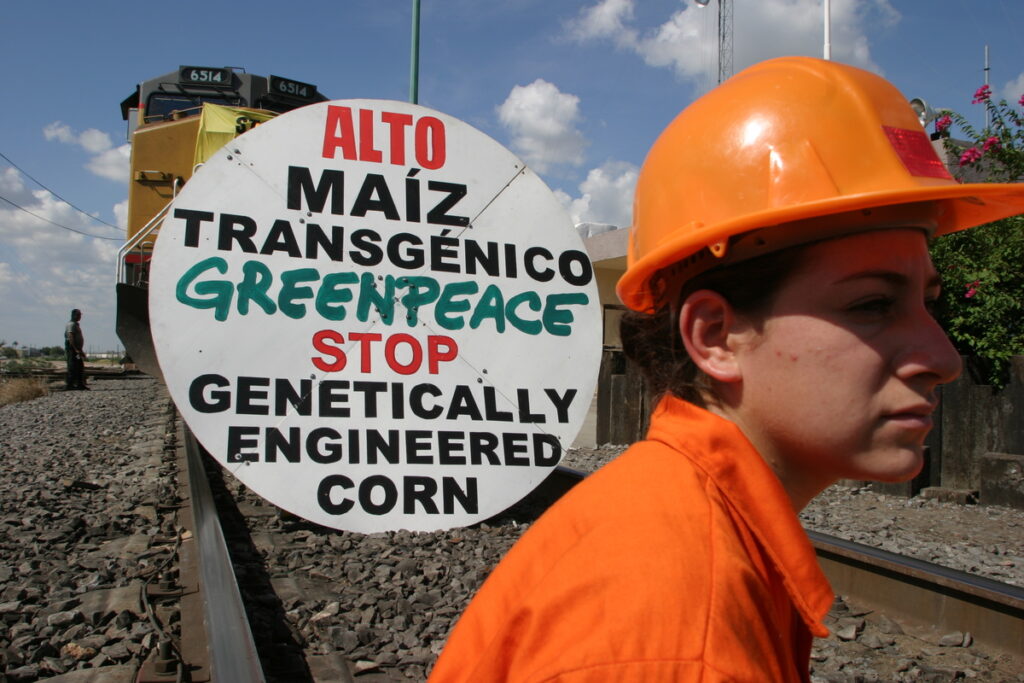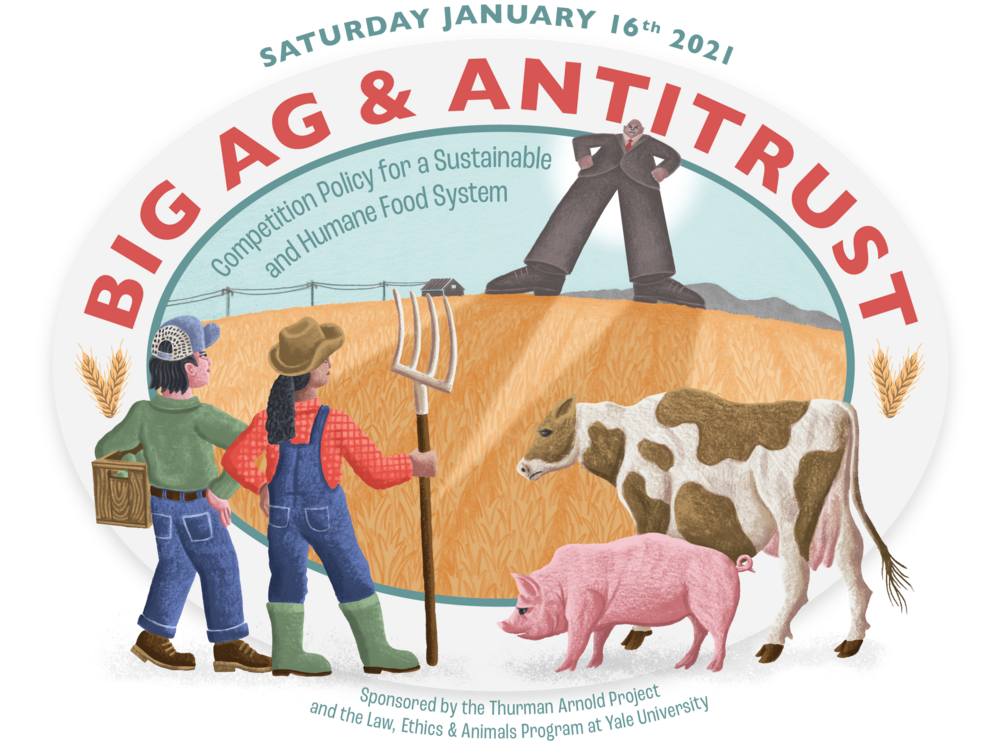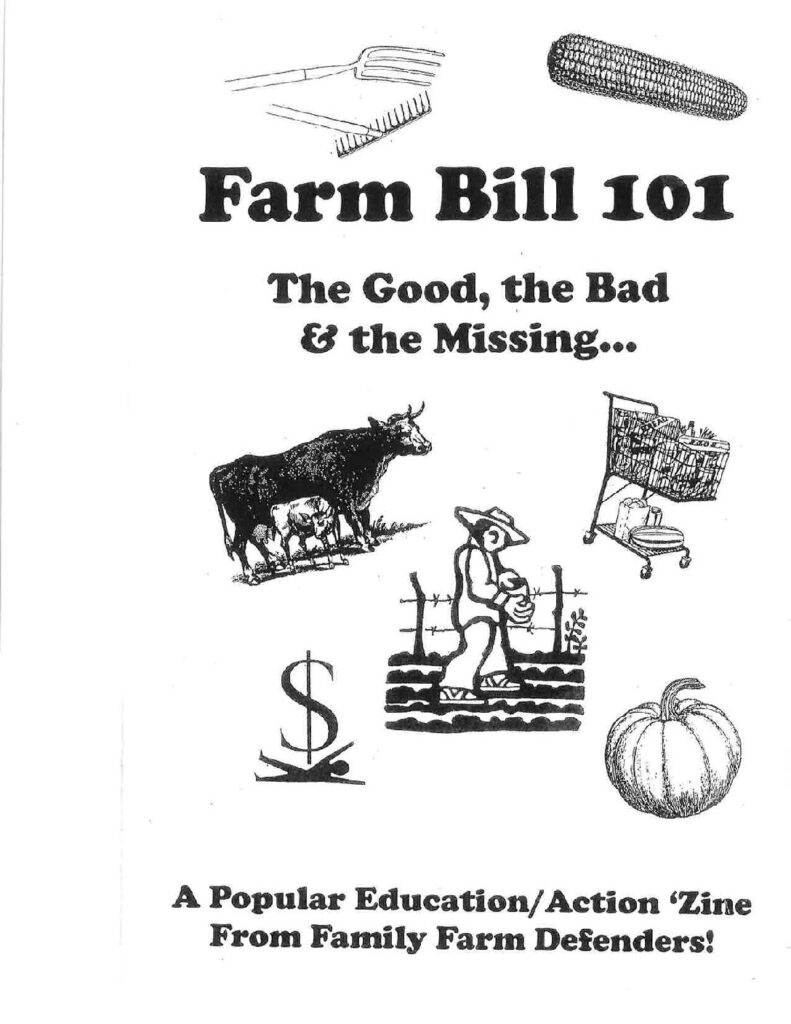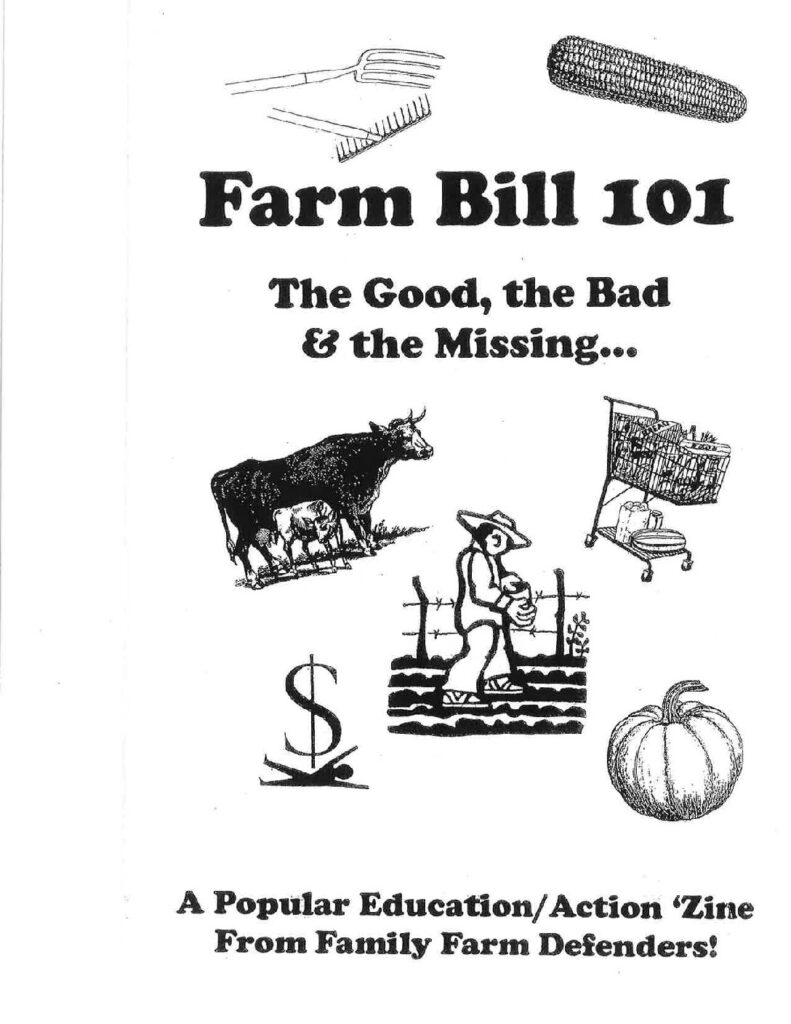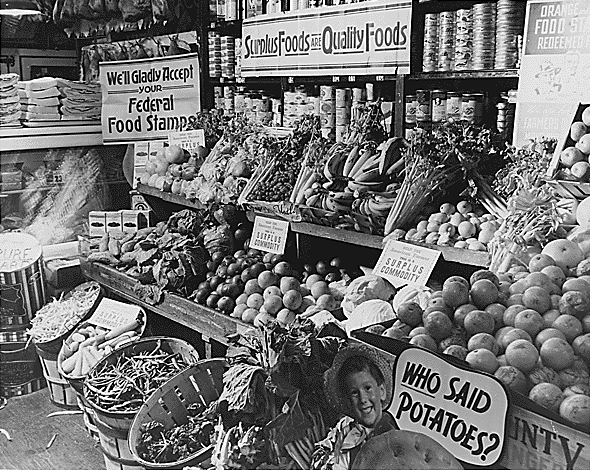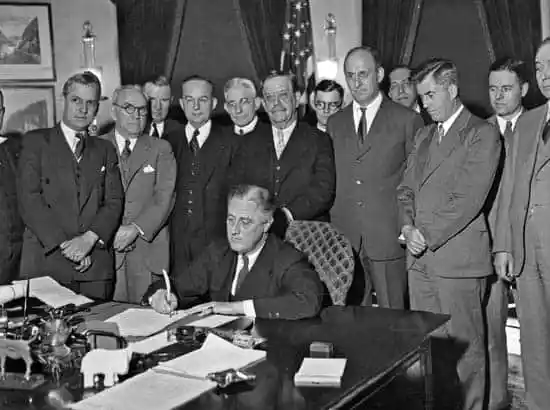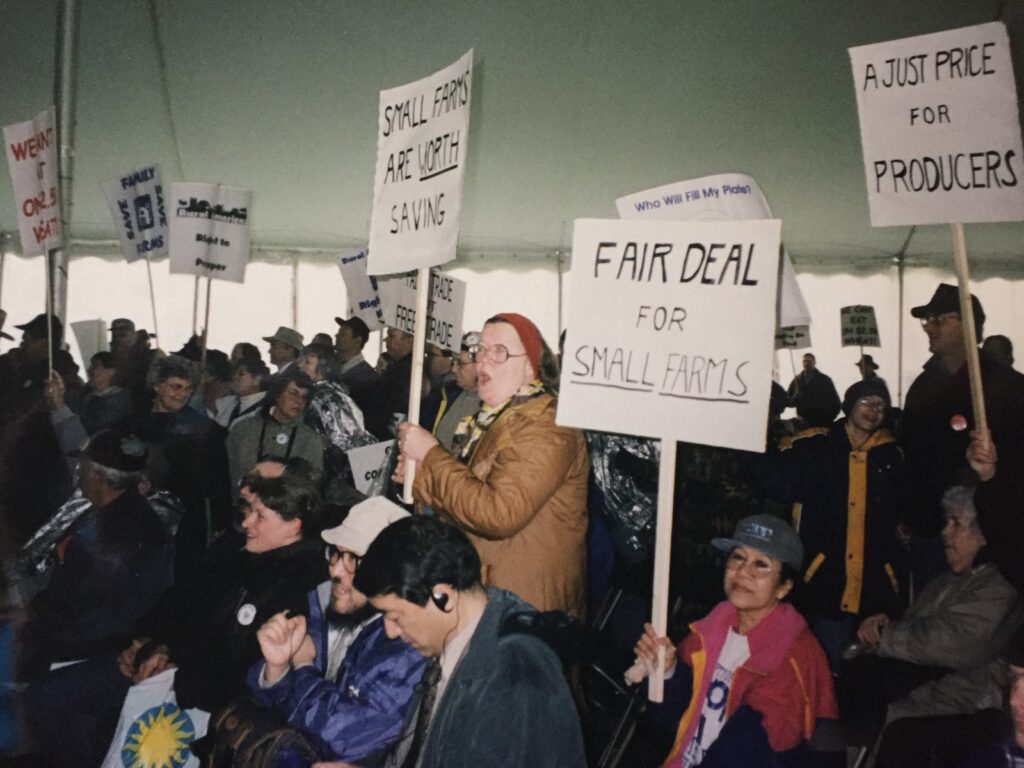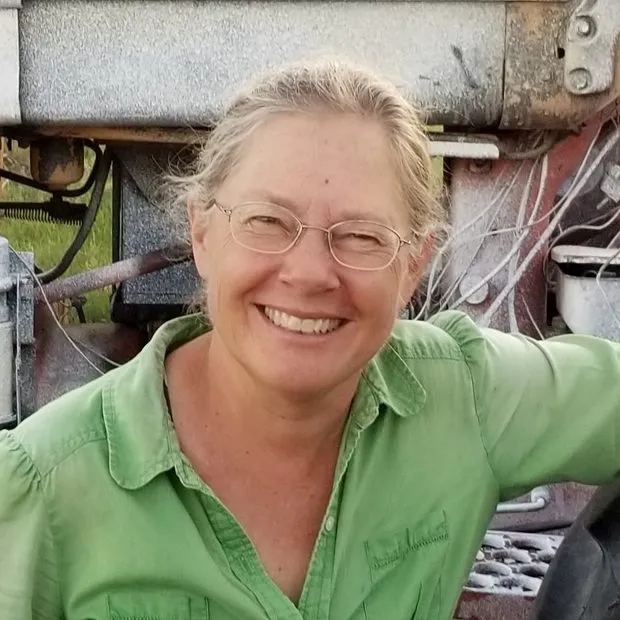Forcing GMO corn on Mexico is part of destructive, pro-corporate U.S. policy
By: Jim Goodman, retired organic dairy farmer, board member of Family Farm Defenders, and board president of National Family Farm Coalition.
Published by the Wisconsin Examiner, 3/13/2023
As farmers in Wisconsin and across the Corn Belt make planting decisions, the question always on their minds is, will income cover their expenses? The price farmers all over the world are paid is determined by the global marketplace. With Mexico being one of the biggest buyers of U.S. corn, Mexico’s planned ban on imports of Genetically Modified (GM) corn (over 90% of the US corn crop is GM) has farmers worried. Their worry should be whether planting GM corn and planting so many acres of GM corn is a sound decision.
Corporate money has always corrupted the political process in order to create laws and trade agreements that protect corporate profits at the expense of not just American citizens, but citizens of the world.
There’s no better example than GM crops. Developed over the decades by seed and chemical companies Monsanto, Calgene, Dow, DuPont, Bayer and others, GM corn, soy, cotton and canola were touted as the solution to world hunger, the key to increased farm profitability, lower pesticide use and a better environment. Sounded good, but none of it was true; the real truth (and that wasn’t mentioned) was that these commodity crops were designed to produce vast corporate profit as they helped usher in a wave of corporate consolidation, loss of small farms, declining rural economies and a foisting of untested GM food on unknowing consumers.
While these GM crops dominate the fields of North America, the seed and chemical companies see the world as their target for even more profit. Their grants to university researchers, and lobbying pressure on and campaign contributions to state and federal legislators, have made GM the so-called face of “progressive” and profitable farming.
Crop yields did go up with increased application of fertilizer and pesticides, while farm crop prices went down. Farmers got bigger to survive, planted more acres and saw the GM bandwagon as the only way: Produce more cheap grain for a growing world market. A market that would feed the growing confined animal feeding operations (CAFOs) that, hand in hand with the GM mono-cultures, were driving small farmers, not just in America but around the world, off their land.
The North American Free Trade Agreement (NAFTA) pushed GM corn into the Mexican market, underselling Mexican farmers. Because they lost their way of life, many moved to low wage factory work in the maquiladoras or across the border into the U.S., looking for work in the fields, CAFOs and processing plants of the North.
Not only were the livelihoods of Mexican farmers ruined by the dumping of GM grain, but the areas of origin of corn were put at risk of pollen contamination from the GM imports. Growing corn is a part of Mexico’s culture. Domesticated 8,700 years ago, corn is sacred and a staple of the everyday diet. Mexicans didn’t want our GM corn, but in an economy pushed towards depression by NAFTA, people were forced to rely on what was available and affordable.
NAFTA of the 1990s wasn’t the end of it. Today under a new (free but not fair) trade agreement, the USMCA, the U.S. aims to force Mexico to not only accept GM corn, but also to overturn the country’s ban on the herbicide Roundup (glyphosate), a probable carcinogen. Mexico wants neither. Mexicans want to grow their own non-GM corn and to import only non-GM corn to meet domestic demand. Glyphosate also threatens biodiversity, not just of Mexico’s ancient native corn varieties, but of pollinators — the bees, butterflies and birds that winter in Mexico. So why would they want that?
Yet under the USMCA, the Biden administration, through its U.S. Trade Representative, has said it will take all steps to enforce U.S. rights. The rights of the U.S. and the rights of Mexico will, in all likelihood, come down to the trade tribunals and the bullying of the U.S. government and its unending support of U.S. corporations and agricultural trade groups. The National Corn Growers Association (NCGA) notes that allowing the ban to move forward (or in simple language, allowing Mexico to protect its farmers, its environment and its culture) would be catastrophic to America’s corn producers. But their real concern lies not with a potential drop in U.S. farm income, but rather a reduction of corporate profit.
America’s corn producers can grow the non-GM corn Mexico would like to buy, and they would be paid a premium to do so. But the power of the seed and pesticide corporations, the multi-national grain companies and industry trade groups like NGCA make growing and marketing of non-GM corn difficult. Growers of non-GM corn must bear the entire burden of preventing any contamination, and U.S. farmers in general are trapped in a system of GM mono-cultures and CAFOs that are immensely profitable for agri-business while the growers produce commodities at prices so low their very survival depends on taxpayer-funded subsidy payments.
What right do we have to force our excess production on the people of Mexico who don’t want it? What right does our government, our research institutions or a group of multinational corporations have to tell anyone what they must eat, what chemicals they must use and that their culture and environment are of little concern? Short answer: Mexico has every right under USMCA to reject GM corn from the U.S.
Yet, as has been the case for over 30 years, the answer from the U.S. government is “Sorry, but corporate profits outweigh anyone’s right to choose.” The U.S. government will do whatever it takes to keep corporate profits flowing.

